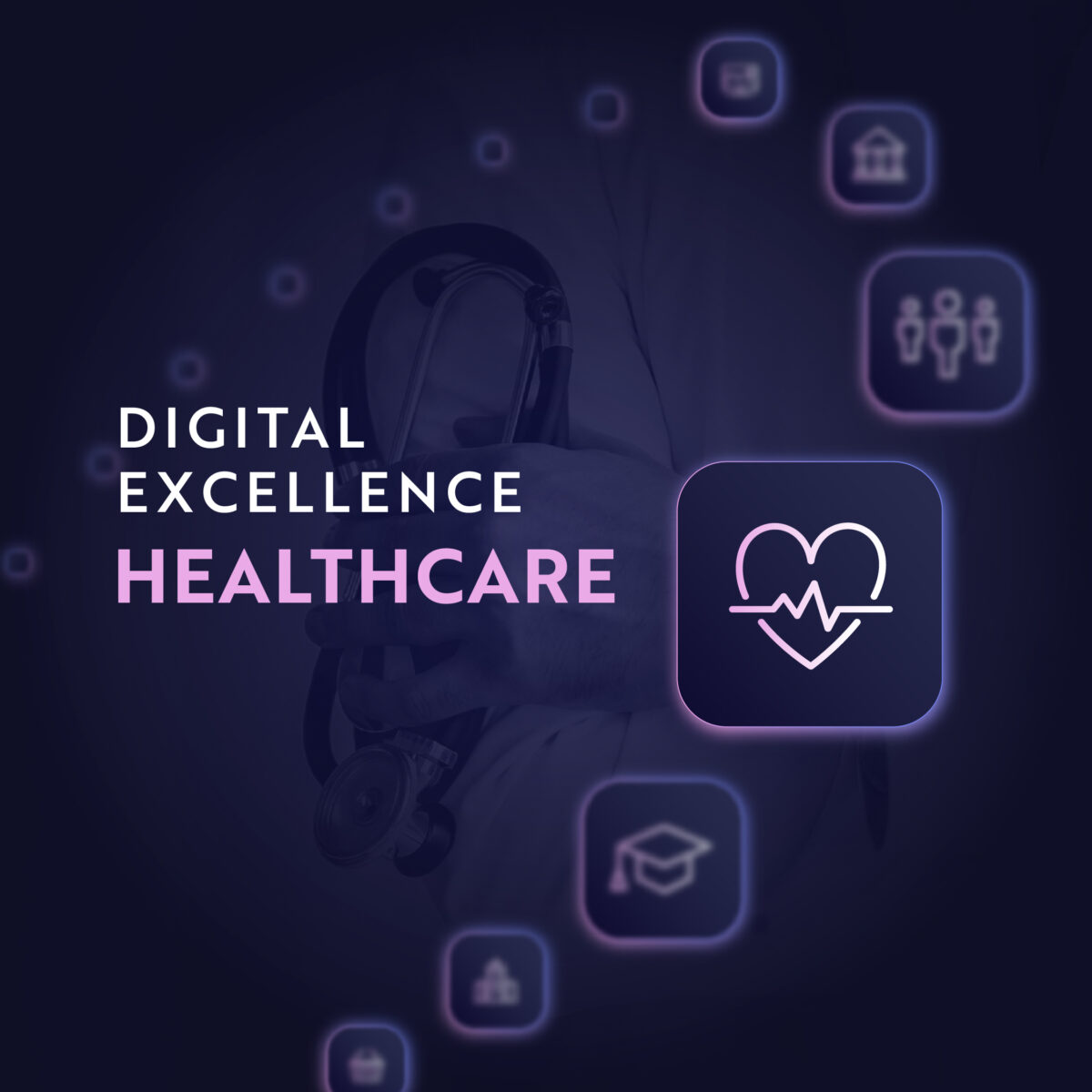
Key Technologies Transforming Digital Excellence in Healthcare
- Artificial Intelligence (AI) and Machine Learning:
- Diagnostic Imaging: AI algorithms analyze medical images with high accuracy, assisting radiologists in diagnosing conditions such as cancer and cardiovascular diseases.
- Predictive Analytics: AI-driven analytics predict patient outcomes, disease progression, and resource needs, enabling proactive care and resource allocation.
- Telemedicine and Telehealth:
- Remote Consultations: Telemedicine platforms enable patients to consult with healthcare providers remotely, improving access to care and reducing the burden on physical facilities.
- Chronic Disease Management: Telehealth solutions support remote monitoring of chronic conditions, improving patient outcomes and reducing hospital readmissions.
- Internet of Things (IoT) and Wearables:
- Remote Patient Monitoring: IoT devices and wearables collect real-time health data, enabling continuous monitoring and early intervention for patients with chronic conditions.
- Smart Hospital Infrastructure: IoT sensors optimize hospital operations, such as energy management and equipment tracking, enhancing efficiency and reducing costs.
- Electronic Health Records (EHR) and Data Analytics:
- Integrated Patient Records: EHR systems provide a comprehensive view of patient history, facilitating coordinated care and informed decision-making.
- Population Health Management: Data analytics identify trends and risk factors across populations, supporting targeted interventions and preventive care initiatives.
- Robotics and Automation:
- Surgical Assistance: Robotic surgical systems enhance precision and outcomes in complex procedures, reducing recovery times and improving patient satisfaction.
- Automated Workflows: Automation streamlines administrative tasks such as scheduling, billing, and inventory management, reducing administrative burdens and improving efficiency.
Benefits and Challenges of Digital Excellence in Healthcare
- Benefits:
- Improved Patient Care: Digital technologies enable personalized, timely, and accurate care, improving patient outcomes and satisfaction.
- Operational Efficiency: Automation and data analytics streamline processes, reduce costs, and improve resource allocation, optimizing healthcare delivery.
- Increased Access to Care: Telemedicine and remote monitoring solutions expand access to healthcare services, particularly for underserved and rural populations.
- Challenges:
- Data Privacy and Security: The collection and use of sensitive patient data raise privacy concerns, necessitating robust data protection measures and compliance with regulations.
- Technological Integration: Integrating new digital technologies with existing systems requires careful planning and investment, particularly for legacy healthcare facilities.
- Cultural Resistance: Digital transformation requires a shift in mindset and culture, which can be challenging for healthcare organizations accustomed to traditional practices.
Digital Excellence in Healthcare: Strong Use Cases
- AI-Driven Diagnostic Imaging:
- Hospitals like Stanford Health Care use AI algorithms to assist radiologists in analyzing medical images, improving diagnostic accuracy and efficiency.
- Telemedicine for Remote Consultations:
- Health systems such as Mayo Clinic leverage telemedicine platforms to provide remote consultations, increasing access to care and reducing patient travel.
- IoT for Remote Patient Monitoring:
- Hospitals like Cleveland Clinic use IoT devices to monitor patients with chronic conditions, enabling early intervention and reducing hospital readmissions.
Compelling Case Studies
Cleveland Clinic: IoT for Chronic Disease Management
Cleveland Clinic has implemented IoT-enabled remote monitoring solutions to manage patients with chronic diseases. By collecting real-time health data, Cleveland Clinic improves patient outcomes and reduces hospital readmissions, demonstrating the transformative potential of IoT in healthcare.
Mayo Clinic: Telemedicine for Enhanced Access
Mayo Clinic has embraced telemedicine to provide remote consultations and follow-up care. By leveraging digital platforms, Mayo Clinic enhances access to care, particularly for rural and underserved populations, setting a new standard for patient-centered care.
Main Recommendations
- Invest in AI and Telehealth Technologies:
- Prioritize investment in AI and telehealth solutions to enhance diagnostic accuracy, improve patient outcomes, and increase access to care. Embrace data-driven decision-making to drive innovation and competitiveness.
- Enhance Patient-Centric Care:
- Leverage digital platforms to offer personalized, convenient, and seamless healthcare services. Focus on improving patient experiences and building loyalty through innovative solutions.
- Utilize the Digital Maturity Index (DMI):
- Conduct regular DMI assessments to evaluate digital capabilities, identify gaps, and develop strategic roadmaps for transformation. Use these assessments to guide decision-making and prioritize initiatives.
- Strengthen Data Security and Compliance:
- Implement robust data protection measures and ensure compliance with industry standards and regulations. Develop a comprehensive cybersecurity strategy to safeguard sensitive patient information.
- Foster a Culture of Innovation:
- Encourage a mindset of experimentation and agility within the organization. Support initiatives that drive digital transformation and empower employees to adapt to changing healthcare dynamics.
Conclusions
The healthcare industry is undergoing a digital transformation that presents both challenges and opportunities. By embracing digital technologies and focusing on patient-centered care, healthcare organizations can unlock significant business value and maintain a competitive edge. Executives must prioritize digital transformation initiatives and leverage tools like the Digital Maturity Index to guide their journey toward digital excellence in healthcare. In doing so, they can drive sustainable growth and profitability while delivering exceptional care in a rapidly evolving healthcare landscape.


















